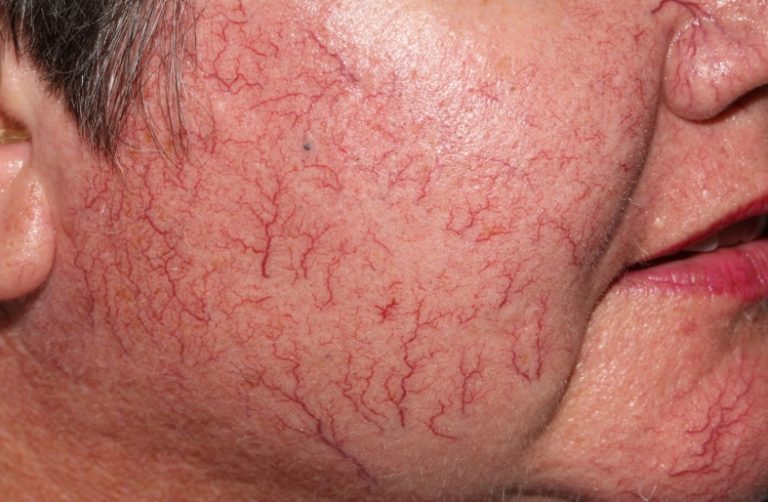Hereditary hemorrhagic telangiectasia (HHT). HHT is a condition in which occult blood loss in the gut may lead to severe iron deficiency anemia. The diagnosis usually is clear from a careful clinical examination, although the telangiectasia are not always as obvious, as in this patient with multiple lesions on the face, lip, and tongue.
The patient had received multiple blood transfusions over many years because of HHT-associated gastrointestinal blood loss, and he had developed cirrhosis associated with hepatitis B antigen positivity, probably as a result of transmission of hepatitis B in transfused blood. (From Forbes CD, Jackson WF: Color atlas and text of clinical medicine, end 3, London, 2003, Mosby.)
The disease has several variants, depending on the severity of genetic expression (Table 25.5). Most of the variants are transmitted as autosomal dominant traits (types 1 and 2). These variants of the disease tend to result in mild to moderate clinical bleeding problems.
Type 1 is the most common form of von Will brand disease. It accounts for about 70% to 80% of the cases.1 The greater the deficiency of vows in type 1 disease, the more likely it is that signs and symptoms of hemophilia A will be found.
Visit The Site: starmusiq
1 Type 2A is responsible for 15% to 20% of cases. The other variants of the disease are uncommon.1,8 Type 3, which is rare, is transmitted as an autosomal recessive trait that leads to severe deficiency of vows and FVIII.1,3,9,12,13 Variants of von .
Conclusion
Will brand disease with a significant reduction in vows or with a vWF that is unable to bind factor VIII might show signs and symptoms of hemophilia A, in addition to those associated with defective platelet adhesion.1 In mild cases, bleeding occurs only after surgery or trauma
Read More About: movierulz4

